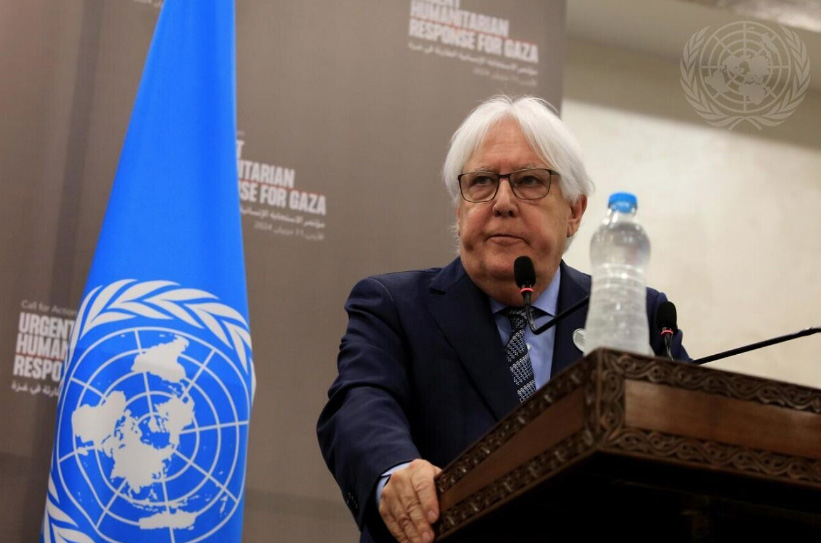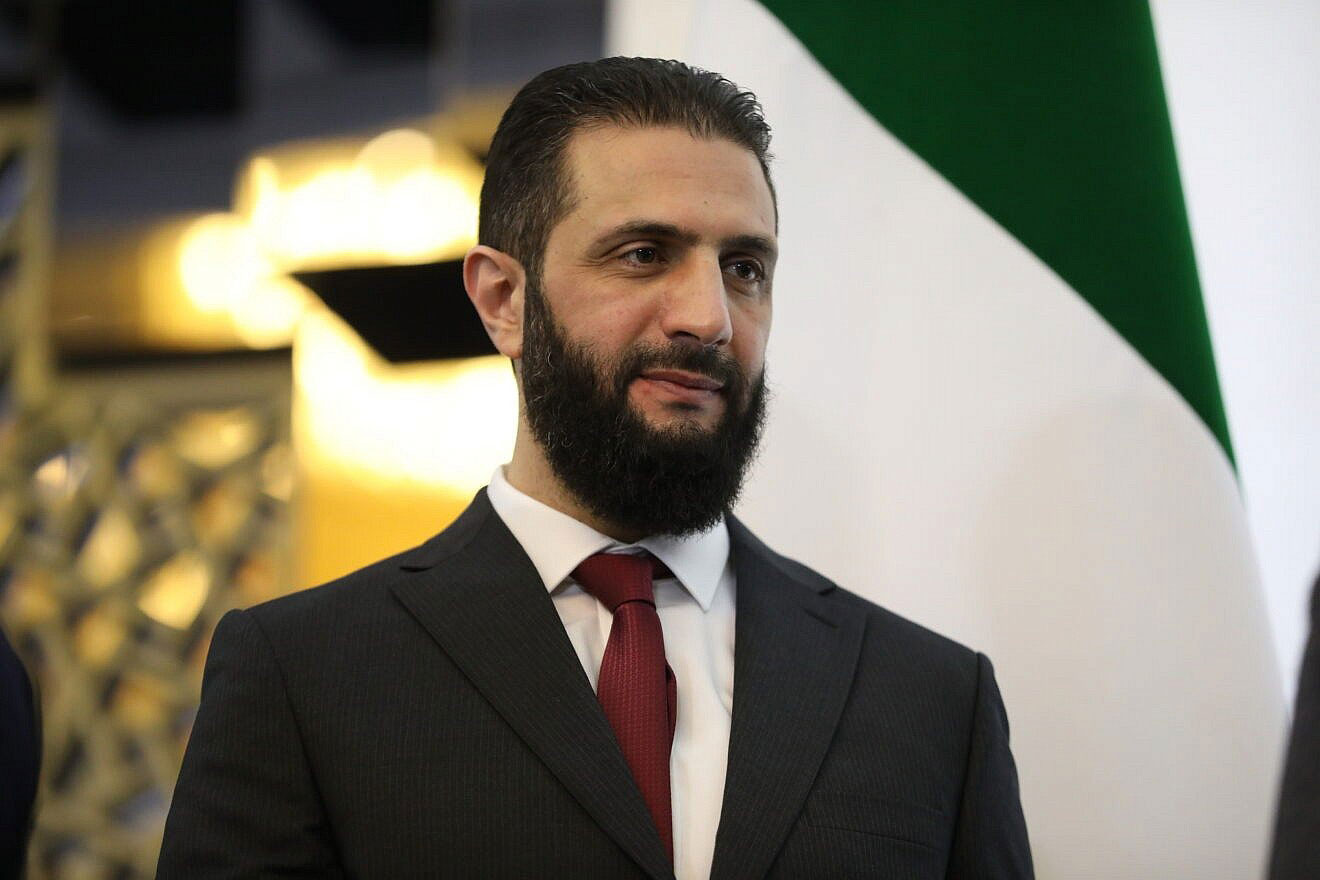Courtesy of JNS. Photo credit: Mohammad Ali Eid Ali/U.N. Photo
Martin Griffiths, U.N. under-secretary-general for humanitarian affairs and emergency relief coordinator, speaks at press conference in Jordan on June 11, 2024
(JNS) — Israel is refusing to extend visas for a significant portion of U.N. staff and other non-governmental organizations, a Jerusalem-based official with the United Nations said on Thursday.
During a briefing about the humanitarian situation in the Gaza Strip, Andrea De Domenico, head of the U.N. Office for the Coordination of Humanitarian Affairs in the Palestinian territories, told reporters that would be his final briefing, as Israeli authorities had not granted his visa extension request.
The relationship between Israel and the United Nations has spiraled since Oct. 7, with Jerusalem repeatedly accusing U.N. officials and bodies of siding with Hamas, showing little to no care for hostages held in Gaza and applying double standards to the Jewish state, as it fends off attacks and threats on multiple fronts from Iran-aligned terror groups.
De Domenico accused the Israeli military of “becoming more and more aggressive” in dealing with U.N. staff in Judea and Samaria, claiming that his colleagues have been “systematically stopped at checkpoints.”
The Israeli military “request the staff to step out of the vehicle, take out the keys, and [is] wanting to ID every single staff,” he added.
Over the last 10 months, most national U.N. staff cannot access the global body’s facilities in the eastern portion of Jerusalem because of a lack of permits, according to De Domenico.
Colleagues of international nonprofits operating in Judea and Samaria “were telling us that roughly 90% of the international staff have issues with visas,” De Domenico said. “They were saying that as we speak, basically, the visas of many of those are coming to an end, and in the coming weeks, most of them will have to leave the country, or they will not be able to operate.”
Before Oct. 7, Israel granted year-long visas to U.N. staff members. However, after Hamas’s terror attack on southern Israel, the Jewish state granted only six- or three-month visas, according to De Domenico. He told reporters on Thursday that his visa was extended for a month, and he was told it would not be renewed again.
“The reason that has been put on the table — the straw that broke the camel’s back — is the publication of the Children and Armed Conflict report,” De Domenico said. “They alluded to long-standing issues or reporting that we also have been doing, but this has been communicated verbally.”
“There is no formal communication that I received despite asking repeatedly for that,” he added. (JNS sought comment from the Israeli Foreign Ministry.)
The annual Children and Armed Conflict report, or the so-called “list of shame,” included Israel for the first time this year and accused Israeli military and security forces of grave violations against children during wartime.
JNS first reported on systematic problems with the compilation of the report, which included contributions of data from the U.N. Office for the Coordination of Humanitarian Affairs. De Domenico’s office has been criticized for publishing Gaza casualty data from Hamas offices without challenging the numbers.
At the Thursday briefing, JNS asked Stephane Dujarric, spokesman for U.N. Secretary-General António Guterres, how widespread the lack of visa extensions are for U.N. officials in Israel and Judea and Samaria.
“Let’s just say it’s spread,” Dujarric told JNS.





